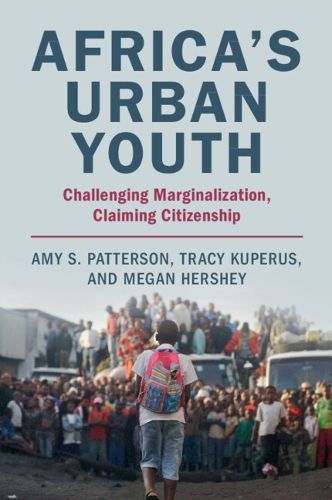Readings Newsletter
Become a Readings Member to make your shopping experience even easier.
Sign in or sign up for free!
You’re not far away from qualifying for FREE standard shipping within Australia
You’ve qualified for FREE standard shipping within Australia
The cart is loading…






Making up 65 percent of Africa's population, young people between the ages of 18 and 35 play a key role in politics, yet they live in an environment of rapid urbanization, high unemployment rates and poor state services. Drawing from extensive fieldwork in Ghana, Uganda and Tanzania, this book investigates how Africa's urban youth cultivate a sense of citizenship in this challenging environment, and what it means to them to be a 'good citizen'. In interviews and focus group discussions, African youth, activists, and community leaders vividly explain how income, religion, and gender intertwine with their sense of citizenship and belonging. Though Africa's urban youth face economic and political marginalization as well as generational tensions, they craft a creative citizenship identity that is rooted in their relationships and obligations both to each other and the state. Privileging above all the voice and agency of Africa's young people, this is a vital, systematic examination of youth and youth citizenship in urban environments across Africa.
$9.00 standard shipping within Australia
FREE standard shipping within Australia for orders over $100.00
Express & International shipping calculated at checkout
Making up 65 percent of Africa's population, young people between the ages of 18 and 35 play a key role in politics, yet they live in an environment of rapid urbanization, high unemployment rates and poor state services. Drawing from extensive fieldwork in Ghana, Uganda and Tanzania, this book investigates how Africa's urban youth cultivate a sense of citizenship in this challenging environment, and what it means to them to be a 'good citizen'. In interviews and focus group discussions, African youth, activists, and community leaders vividly explain how income, religion, and gender intertwine with their sense of citizenship and belonging. Though Africa's urban youth face economic and political marginalization as well as generational tensions, they craft a creative citizenship identity that is rooted in their relationships and obligations both to each other and the state. Privileging above all the voice and agency of Africa's young people, this is a vital, systematic examination of youth and youth citizenship in urban environments across Africa.